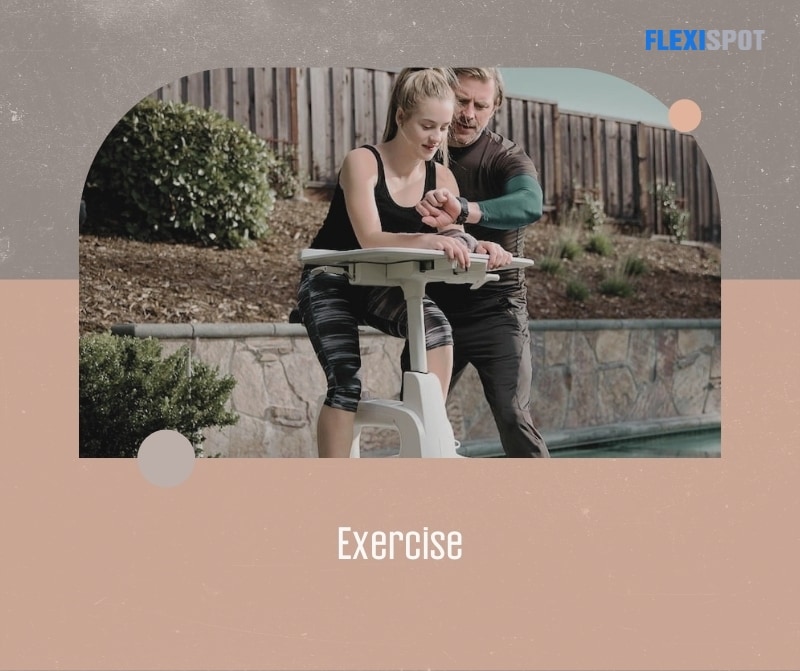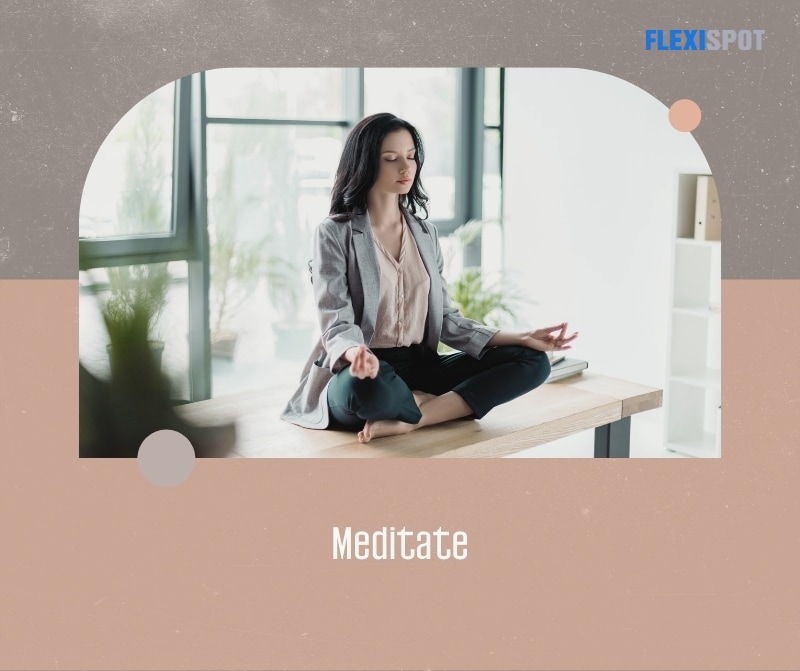Because intelligence is a use-it-or-lose-it asset, brain exercise must be a continuous effort. You can't expect to be brighter forever by playing a ten-minute brain-training game. Becoming smarter requires commitment and practice.
It's typical to believe that intellect is something you're born with. Even so, some people make it appear as if being smart is second nature to them. However, intelligence isn't a fixed characteristic. It's a malleable, adaptable opportunity to learn and excite your mind that can get better with time. The aim is to develop brain-supporting and brain-protecting lifestyle behaviours. Several lifestyle habits may help you in improving your general intelligence, which comprises two types of intelligence:
- Crystallized Intelligence:
This refers to your knowledge, abilities, and vocabulary. As you get older, your crystallized intellect generally increases.
- Fluid Intelligence:
Your ability to reason and think abstractly is known as fluid intelligence.
Exercise, minimal stress, and constant learning are three of the most effective techniques for enhancing your brainpower. However, it isn't easy to devote to them when your business absorbs all of your time. Your mental fitness is equally as vital as your bottom line or marketing strategy for running a successful business. Staying sharp requires effort, but learning to do so will help you become a more adaptable and innovative organizational leader. Here are ideas for incorporating brain-boosting exercises into your hectic schedule:
Tackle the Most Complex First
It's easy to try and excuse yourself for getting all the minor, quick things out of the way while you're starting your day or dealing with a big project. You're procrastinating to put off the main task. This isn't an effective method. First and foremost, you must take on the massive block. Start with your most challenging activity, focus on it until it is completed, and then use the remainder of your time to complete minor tasks once your mind is clear of the stress of the more significant assignment. It's a more efficient and focused approach to achieving your numerous tasks.
Create an Interruption-Free Space
Ensure your working environment is clear of distractions and allows you to concentrate on the one task you're working on. Turn off your email and any social media accounts. Turn off your phone. Are you concerned that your teammates will be distracted by your flash of inspiration at work? If you don't want to be disturbed, put on your headphones. It's an obvious indication that you're in your zone.
Use comfortable and health-supporting ergonomic equipment such as a height-adjustable standing desk and ergonomic office chairs for your workspace. These items keep pains and aches at bay, giving way and time to accomplish tasks rather than getting distracted with that sore lower back or nagging shoulder and neck discomfort.
Exercise
Physical activity is one of the most effective strategies to improve cognitive abilities. Minimal exercise boosts activity in the hippocampus, which is essential in memory, according to a study. It also strengthens the link between the hippocampus and other memory-controlling brain areas. The study's authors theorized that aerobic activity stimulates neuron development, which improves brain structure and function. Exercise must be done regularly to reap the cognitive benefits. The excellent news is that you don't need to engage in strenuous exercise to gain the benefits. The following are some beginner-friendly exercise suggestions:
- walking
- hiking
- yoga
- bodyweight workouts
Physical fitness is the most significant factor in sustaining brain function. Your intellect will begin to weaken if you do not keep your body healthy. Workdays stand in the way of many entrepreneurs' exercises. Rather than juggling both, combine them. On a desk bike, you can take calls or answer emails, finish tasks and projects, or even while brainstorming or meeting. You will not only have more energy, but your brain will also work better now and in the future. 
Take a Walk
If you're stranded on a particular area of a task or your creative juices have dried up, it may be a good thing to take a break. Maybe you're exhausted. Just take a breather. Take a break from your computer, take a few deep breaths, and get some fresh air. Have some water, eat some healthy nibbles, and strike up a conversation with some of your workmates. When you're out of the situation and chatting totally about something else, solutions can spring to mind. It's beneficial to clear some space in your head so you may consider fresh possibilities and rekindle your creative impulses.
Keep Learning
Commit to being a student for the rest of your life if you want to improve your intelligence. According to a study, a more extended period of education is associated with a better IQ. According to another study, ongoing education improves cognitive performance and protects the brain. You don't have to get another degree to continue your study. You can do the following:
- start a new hobby
- listen to podcasts
- learn a new language
- watch TED talks
- read books on a new topic
- attend lectures or workshops
According to some studies, sitting at your desk for 8 hours straight diminishes the benefits that a one-hour morning exercise may have provided. It is not sufficient to exercise once every day; you must remain active all through the day. Human bodies are not made to sit on seats for long periods, no matter how well-built they are. According to the experts, every 20 minutes at your desk, do 20 seconds or move about. This is also when standing desks make it easier for us to stretch out and shake off jitters to help us refocus and keep us productive through our days at the workplace.
Meditate
The greatest threat to sustaining excellent mental function is stress. When you're stressed, the hormone cortisol is released, which hampers your brain and cognitive function. Mindfulness, often known as meditation, is a technique for reducing stress and maintaining mental sharpness. While you wait for the water to boil, a bus to arrive, a presentation to begin, or a doctor to finally see you, meditate. It does not necessitate stillness or seclusion; rather, it necessitates conscious attention.
Get Enough Sleep
Sleep is also necessary for good cognitive performance. Your brain centralizes memories acquired all through the day while you sleep. When you awaken, it also improves your brain's ability to comprehend knowledge. Regular sleep is so vital that even a slight lack of sleep has been shown to hurt working memory.
Drink Coffee or Green Tea
Adenosine is a chemical in the brain that inhibits the production of stimulatory substances. On the other hand, caffeine blocks adenosine, allowing these chemicals to offer you a boost of energy. This has the potential to improve learning and mental function. Green tea can also help to improve brain function. Caffeine, present in minute quantities in green tea, is responsible for some of these benefits.
Set Deadlines for Leaving Work
There will be days when you cannot meet it due to intense client business or unforeseen circumstances, but you should fulfil it at least 80-90 per cent of the time. You must take time away from work to engage in other activities to keep you energized. More significantly, if you believe you have all the time in the world and are not in a rush to get home, you will waffle all day long. Make a daily limit to leave at a set time, and you'll remember you have to finish everything by then.
It's important to remember that intelligence isn't defined by knowing more than others. It's all about challenging your mind, solving challenges, and constantly learning. You may be able to improve your cognitive function and IQ over time by staying curious and trying the suggestions given above.







